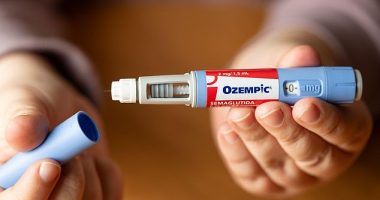When I walk I often feel ‘woozy’ — as though I’m about to faint. I think it’s called presyncope.
I have a pacemaker but my pulse can vary between 150 and 180. It can be brought on by stress.
Could it be related to my medications (apixaban, Forceval, bisoprolol, atorvastatin)?
I’m 83, an ex-para and have always been very fit.
Anthony Appleby, Exeter.
Dr Martin Scurr replies: The episodes you describe must be alarming and I do think they merit investigation.
A rapid heartbeat (where the heart beats more than 100 times a minute) is called tachycardia — there are different types and an electrocardiogram (ECG), which measures the electrical activity of the heart, will identify which type it is (this matters as the treatment varies).


A rapid heartbeat can be caused by consuming too much caffeine along with prescription medication
Two of the most common types are supraventricular tachycardia (where the heart suddenly beats much faster than normal for minutes or even hours) and rapid atrial fibrillation (an erratic heartbeat).
Sometimes tachycardia is caused by too much caffeine, or prescription medication (usually for heart conditions or asthma) — but none of the drugs you’re taking is implicated.
It seems that your issue may be the heart’s own pacemaker.
You’ve previously been given a pacemaker device because your heart rate was too low and the implant maintains your heart rate.
If the pulse falls below 60 beats per minute it will cut in and ensure a faster rate.
Now what seems to be happening is that at times — when you exercise or when stressed — your heart speeds up.
If you have a very rapid tachycardia there’s not enough time between each contraction of the heart — i.e. each heartbeat — for the chambers of the heart to fill completely with blood.
With less blood being pumped around your body, you experience a drop in blood pressure, which is why you feel faint (called presyncope; syncope is the term for an actual faint).
The type of tachycardia you have can be diagnosed with continuous ECG recording — either a 24-hour record or perhaps a seven-day record — to capture one of your episodes.
Once the type has been determined, your doctor may increase your dose of bisoprolol, a beta blocker, which slows down heartbeat.
I recently returned from a holiday with no sense of taste. My GP diagnosed long Covid. When I went for my Covid jab he said that if my taste doesn’t come back this year, it never will. I’m 73 and don’t want to spend the rest of my life eating cardboard.
Alec Rawlinson, by email.
Dr Martin Scurr replies: Let me reassure you there is good reason for cautious optimism.
As you’re probably aware, long Covid is the label given to Covid symptoms that continue for longer than three months after the original infection, and includes a wide range of physical, cognitive and emotional changes.
But despite the huge body of research since the pandemic began, the cause of these long Covid symptoms remains a puzzle and it’s likely that a number of mechanisms are involved.
Your lost sense of taste (ageusia) will be accompanied by a loss of smell (known as anosmia) because the two senses are inextricably linked.
The majority of patients who lose these with Covid infection do regain them by three months.
But if you don’t experience any improvement it’s worth trying olfactory training — you can access this online.
It involves exposure to four distinct odours, twice a day, for six months. The aim is to retrain the sense of smell by re-establishing neurological connections.
If you still see no improvement, I’d ask your GP to refer you to an ear, nose and throat consultant who can evaluate whether specialist treatments, such as corticosteroids, may help you.
In my view…
Don’t assume the AI doctor is reliable
Artificial intelligence may not be so intelligent after all, if a friend’s recent experience is anything to go by.
He’s long suffered from back pain and was diagnosed with osteoarthritis of the facet joints (in the lower spine): his specialist recommended a procedure to destroy the nerves to these joints to reduce his pain.
But first he needed an MRI to see which area should be targeted: as my friend is agoraphobic, he was booked for an upright MRI (easier for agoraphobic patients to bear), using a 0.5 Tesla scanner.
However, a bit of research suggested that the quality and definition of the image provided by this scanner is lower than with others.
He asked me whether he should complain and I said he should speak to his surgeon.
He called again an hour later: he’d been investigating scan technology using ChatGPT and discovered the information he’d been given about the poorer quality of the 0.5 Tesla was misleading. ChatGPT had invented higher-definition scanners.
This is a warning to all. Check critical medical information from artificial intelligence very, very carefully.
Source: Mail Online







